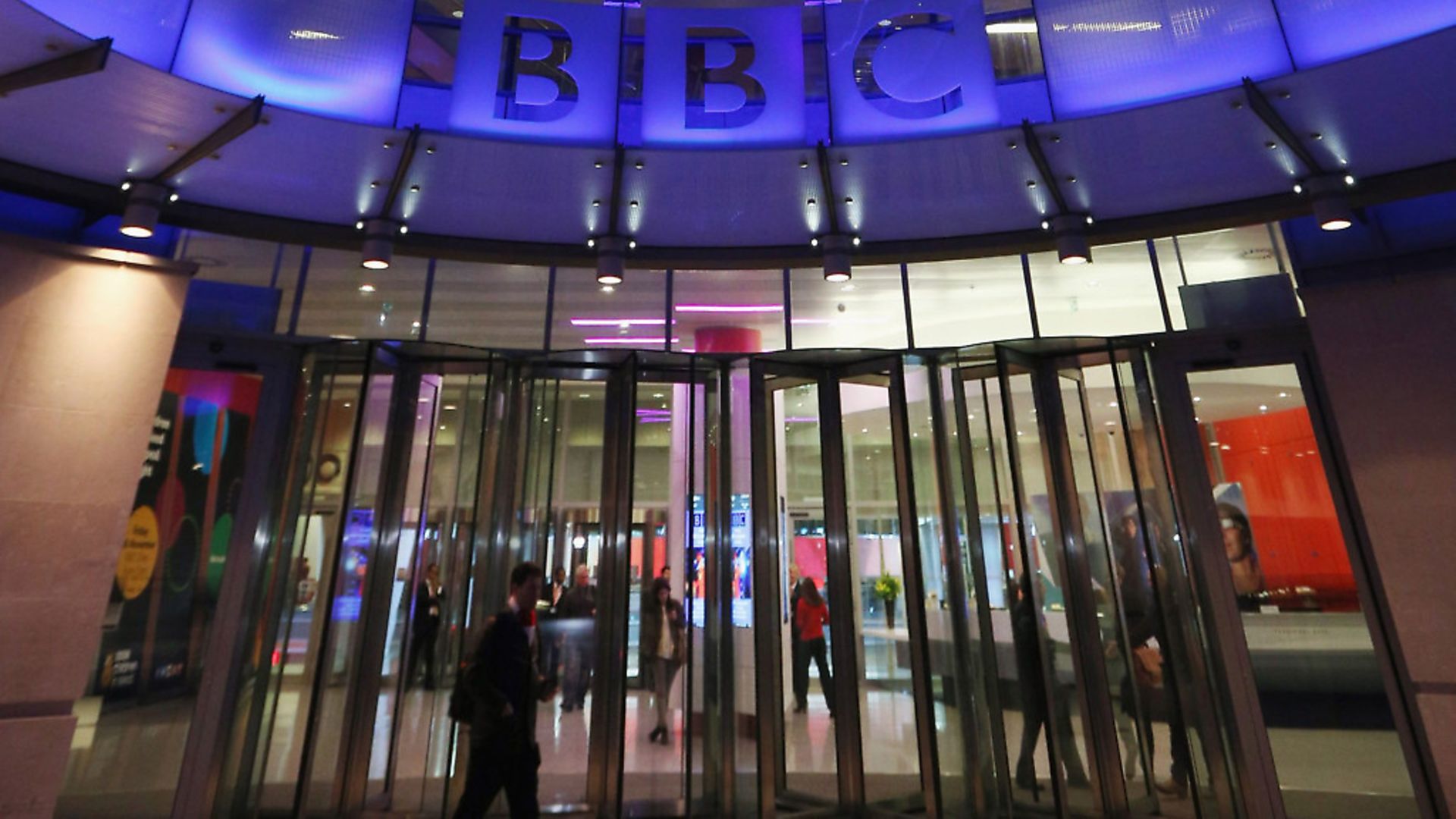
Only a few months ago, the BBC was in the government’s crosshairs. Now, says MATTHEW D’ANCONA, it has a new lease of life.
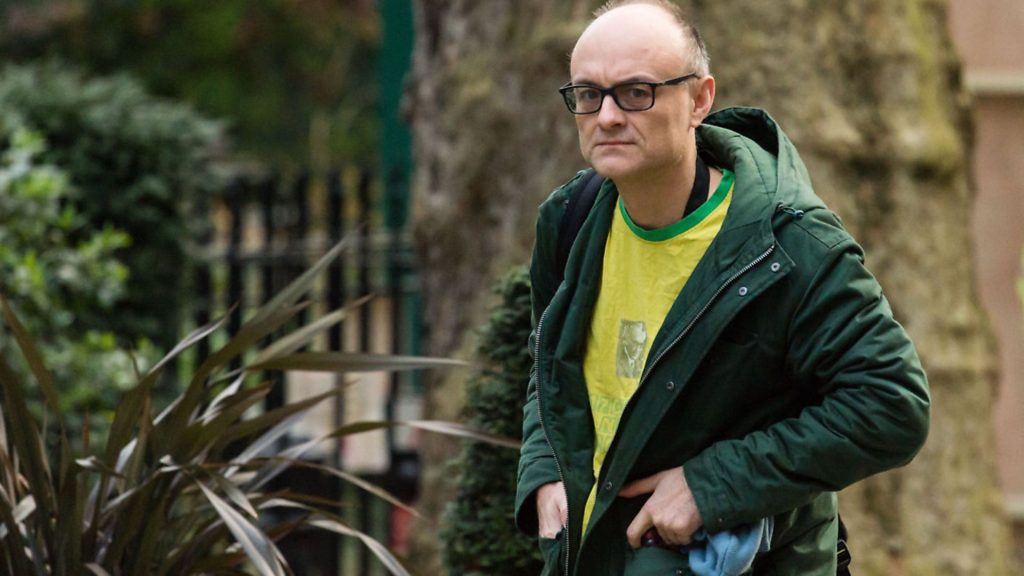
‘Tony’s not going anywhere – not just yet.’ So says a senior BBC executive of the corporation’s director general, Lord Hall of Birkenhead. In January, after seven years in the top job, he announced that he would be leaving in the summer. And it is still Hall’s plan to leave as soon as is practical, to take up the chairmanship of the National Gallery – ideally in the autumn.
But the context in which he decided to resign feels a lifetime ago. The interviews to select his successor have been postponed to next month, which means, given the pace at which BBC decisions are taken, that their identity will probably not be known until July at the earliest. Hall has no intention of hanging on for the sake of it, believing that the next DG will need a clear run to prepare for licence fee negotiations in 2022 and Charter renewal five years thereafter.
Nonetheless, he has made clear to Sir David Clementi, the chairman of the BBC Board, that he won’t bail out while the nation is still in the grip of a pandemic – a crisis in which public service broadcasting has enjoyed a much-needed renaissance.
It would make no sense for him to do so, at such a critical hour in the corporation’s history. Hall did not seek this particular swansong. But now it is his, he is not going to fall silent halfway through.
This is the story of five months in the life of the BBC, a 98-year-old institution that is loved by many and reviled by some. I spoke to more than a dozen senior figures at the corporation and inside the government, all of whom spoke on condition of anonymity.
They recounted a helter-skelter drama in which the BBC faced the possibility of extinction, was granted a reprieve – and now has an unexpected opportunity, born of national adversity, to renew itself and develop the resilience it will need in the harsh political, economic and media landscape of the post-coronavirus world; an opportunity, one should add, that is no less challenging than all that preceded it.
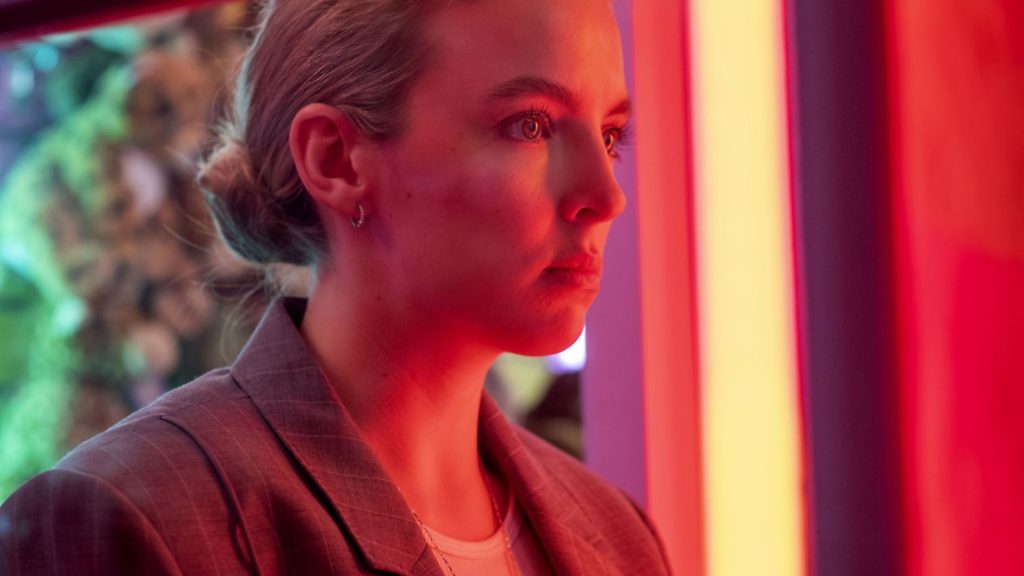
Sid Gentle/BBC – Credit: Sid Gentle/BBC
It was, more than one senior BBC source told me, like the media-political equivalent of the Cuban Missile Crisis. As soon as it became clear on the night of December 12 last year that Boris Johnson had destroyed the Labour Party, and secured an 80-seat Commons majority, there was no doubt that the corporation faced a challenge to its very future as the world’s leading public service broadcaster.
Relations between the BBC and Conservative Party had been dire during the election campaign – Johnson’s refusal to be interviewed by the ferociously forensic Andrew Neil becoming emblematic of a much broader feud. Only three days before the nation went to the polls, the prime minister said that he was ‘certainly looking’ at the future of the licence fee – the compulsory £157.50 annual levy on all owners of a colour television and users of the BBC iPlayer digital platform.
**********
For the Conservative Party, BBC-bashing had long been something close to a tribal ritual. Tories had often complained about the BBC’s coverage of the Troubles in Northern Ireland, the Falklands War, and – in 1986 – Kate Adie’s reporting of the US bombing of Libya.
But this was not the normal static of Conservative grumbling. In the new populist playbook deployed by Johnson and his chief adviser, Dominic Cummings, the BBC was cast as the institutional expression of everything bad about Britain: it was – supposedly – the voice of the liberal elite, of metropolitan indifference to the nation outside London, of faddish political correctness and unpatriotic prissiness.
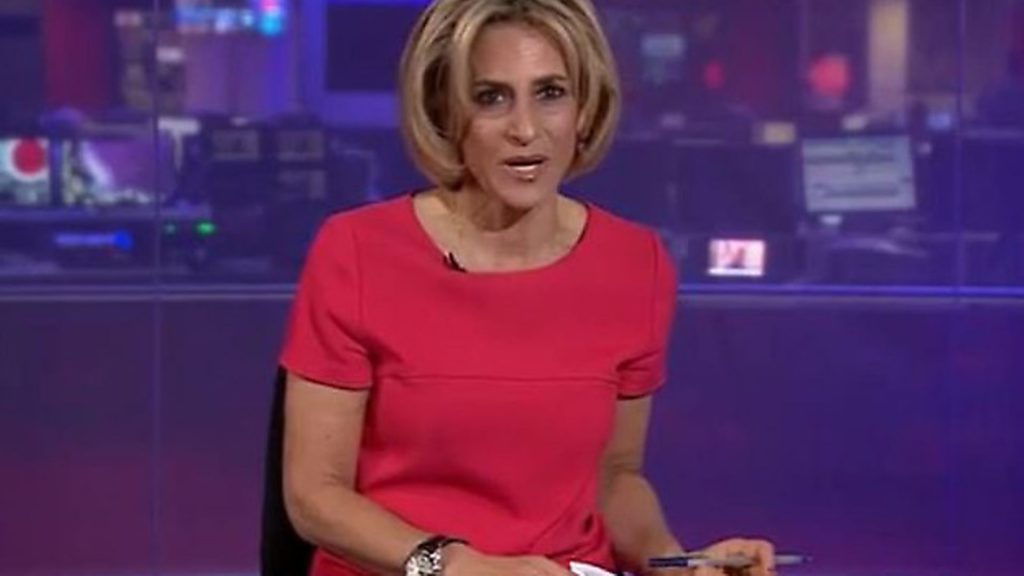
In particular, it was regarded by the PM and his gang of Vote Leave veterans – now at the apex of government – as structurally opposed to Brexit (even though, confusingly, many Remainers believed precisely the opposite, and accused the BBC of being the ‘Brexit Broadcasting Corporation’).
So when the newly strengthened Johnson regime announced immediately after the election that it would be boycotting the BBC’s flagship political radio programme, Today, it was clear to Hall and his senior news executives that the government’s attacks were more than rhetorical red meat tossed to its electoral base.
There was also busy talk of decriminalising non-payment of the licence fee – a measure that, ministers knew, would cost the BBC dearly (an estimated £200 million a year if failure to pay did indeed become a civil debt rather than a criminal offence, and thus more complicated and time-consuming to enforce). On December 15, the Sunday after the general election, the then chief secretary to the Treasury told the BBC’s own Andrew Marr that decriminalisation was ‘something the prime minister has said we will look at, and has instructed people to look at that’.
Such a measure would entail lost revenue the corporation could ill afford. As it was, Fran Unsworth, the BBC’s head of news, was preparing a package of painful savings that would involve 450 job losses and the axing of BBC Two’s popular Victoria Derbyshire programme – the final phase of an £80m plan of cuts in her department.
The corporation was also facing the loss of £250m a year, as it assumed the burden of free licence fees to over-75s who claimed pension credit, after the government had decided to stop subsidising the fee for that older demographic.
Decriminalisation, in other words, would hurt the BBC financially at a particularly bad moment. It was also, in all probability, the thin end of the wedge – diluting, if not abolishing, the all-important principle that payment of the licence fee was compulsory. As a social signal, it would be a green light for evasion.
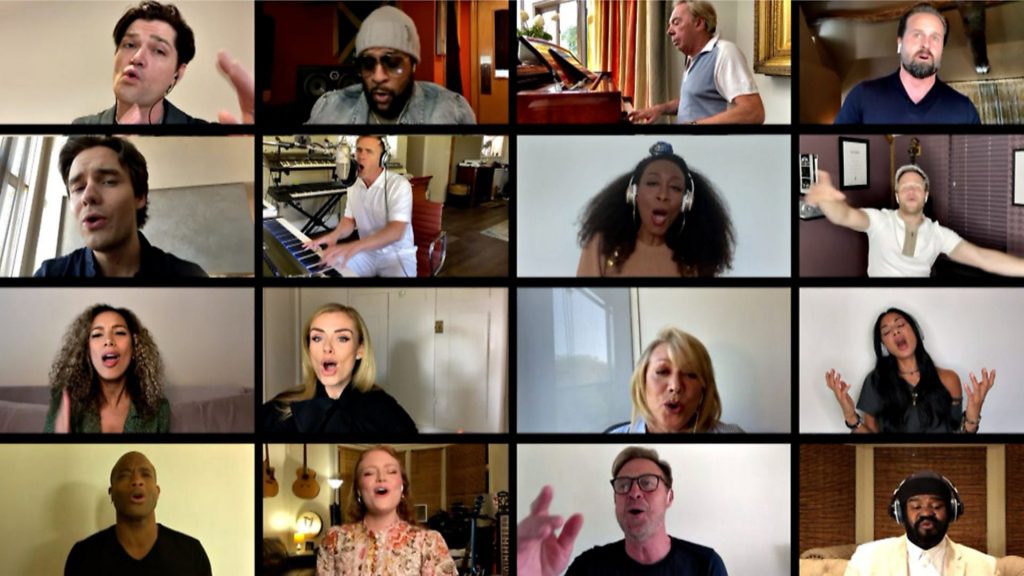
Johnson and Cummings were, it seemed, deadly serious in their determination to wage all-out war – as Donald Trump had – upon sections of the media they disliked, starting with the biggest target of them all.
Hall responded by convening a series of rolling meetings in December and January at New Broadcasting House with his top team and trusted advisers, to address what he now regarded as an existential crisis.
According to one source familiar with these discussions: ‘Fairly quickly, three main principles emerged. We would have to get out of the defensive position and say something a bit bolder – that if the BBC did not exist, you would still want to invent it. Second, that the algorithms driving streaming platforms were incapable of producing true public service broadcasting. And third that, whatever funding system was used, it had to be compulsory.’
This was the heart of the matter. If viewers could choose whether or not to subscribe to Sky, Netflix, Disney+ or Apple TV+, why should they be compelled by law to pay for the BBC by the so-called ‘television poll tax’? The answer is that, like all taxes – and it is a tax – the licence fee is mandatory because only compulsory levies can guarantee the services that ensure public sector excellence. This is why the health service is not funded by donations, and why schools rely upon the taxes we all pay.
‘A voluntary subscription service would be something fundamentally different,’ says the same source. ‘It would not generate anything like enough revenue [for us] to be recognisably the BBC, or have the capacity to take risks or subsidise a world-class independent news service. How many political correspondents does Netflix have? In that respect, this was a binary choice.’
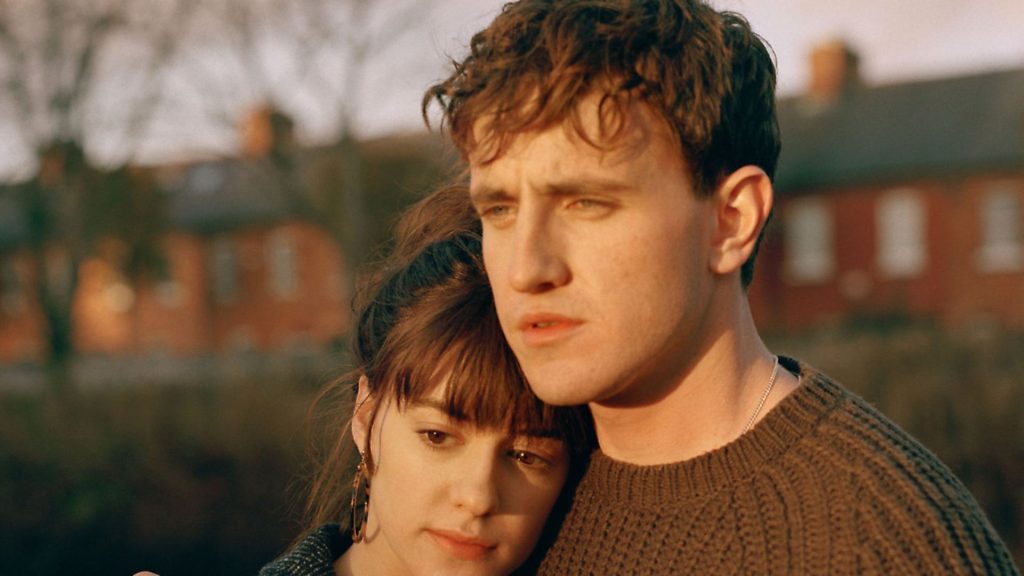
**********
In a Financial Times article on January 12 – an edited version of a speech to senior management – Hall launched his public campaign to fend off the attack by Number 10. ‘The universality of the licence fee guarantees our commitment to creativity and risk-taking,’ he wrote. ‘Because we are funded by everyone, we must offer something outstanding for everyone. Far from growing less relevant in a digital age, this unique relationship with audiences has never been more necessary. How better to hardwire creative ambition into what we do in today’s media landscape?’
As one senior BBC editor puts it, the silence was deafening. ‘I wasn’t sure if the FT piece was a mistake. I thought it might just have riled them up in Number 10 even more. Anyway, at that point, I was pretty sure we were buggered – as close as it gets to oblivion.’
The government’s public response – unofficial, but still a thunderbolt – was delivered more than a month later in the Sunday Times of February 16. Under the headline ‘No 10 tells BBC licence fee will be scrapped’, the paper’s well-connected political editor, Tim Shipman, reported that the government was now hell-bent on imposing a subscription model and compelling the BBC to downsize its operations radically.
Shipman quoted ‘a senior source’ – generally assumed to be Cummings – insisting that ‘we are not bluffing on the licence fee. We are having a consultation and we will whack it’. The message was unambiguous and received accordingly. The very existence of the BBC as presently understood was now in play.
Enter, unexpectedly, a most unlikely saviour figure in the form of John Whittingdale, a former culture secretary now restored to his old department as a minister of state. ‘Whitto’ was regarded with a degree of suspicion in New Broadcasting House: a diehard Thatcherite who had served as the Iron Lady’s private secretary, he had no instinctive fondness for the BBC.
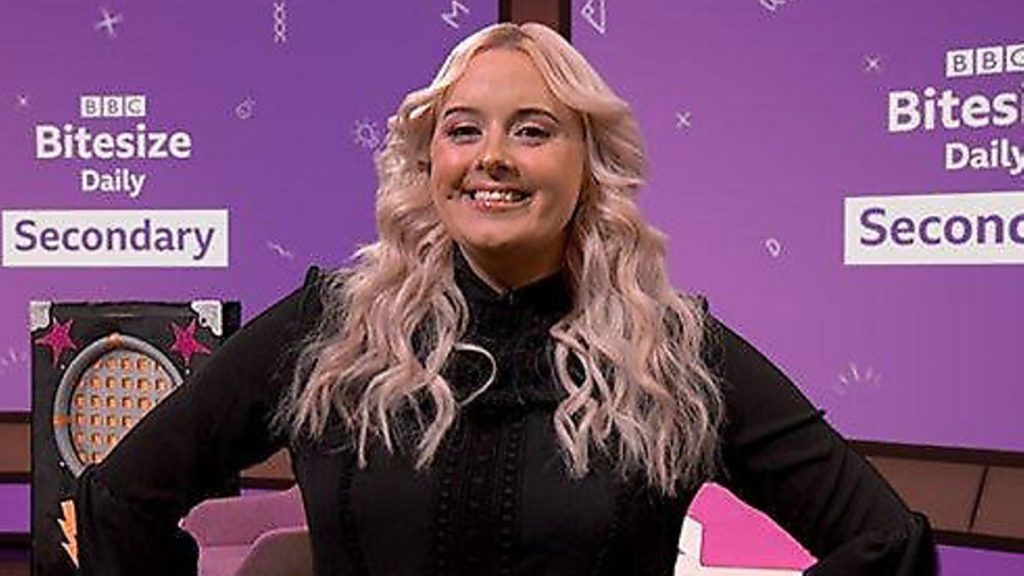
But he also knew what was possible in government, and what was not. As he explained to Number 10 after the Sunday Times story broke, what was being proposed was not only seriously impractical; it was also electoral madness.
**********
More than 18 million households use Freeview, the digital terrestrial platform that delivers 70 television channels, including the main BBC services, at no additional charge. The ‘Whittingdale Objection’, as it became known, was as follows: since Freeview does not have the technological capability to withhold BBC channels from non-subscribers, it would have to be switched off entirely under the Cummings proposals; effectively denying many millions of families access to television.
Once he grasped this, the PM saw immediately that the subscription option was, in fact, a political non-starter. The Times was briefed accordingly, and reported the climbdown on February 18 as a split between Johnson and Cummings – with the PM having come down on the side of ‘reform rather than revolution’.
After only 48 hours, the subscription model had been kicked squarely into the long grass. ‘I think the other guy just blinked,’ one of Hall’s friends texted him. ‘I think that’s right!’ the DG replied.

On the night of the Times story, Whittingdale regaled guests at the Brit Awards, held at the O2 Arena, with this unlikely tale of the Thatcherite-who-saved-the-BBC. ‘I used to be called a headbanger,’ he declared, as Stormzy took to the stage. ‘But these days I seem to be one of the moderates!’
Reasonably content that the threat had been staved off, Hall resumed his departure plans. He had been brought in, in 2013, to steady the listing ship after the Jimmy Savile scandal, in which the BBC had been accused of turning a blind eye to the late entertainer’s serial sexual offences, many involving minors. (Hall succeeded George Entwistle, who held the post for only 54 days).
Now – with some unexpected help from Whittingdale – he had averted the greatest political challenge to the corporation since Greg Dyke and Gavyn Davies, then DG and chairman, were forced to resign in 2004 after the Hutton Inquiry into the death of Dr David Kelly and the BBC’s coverage of the Iraqi weapons of mass destruction threat. The final chapter of Hall’s long career at the BBC had been written, and it was time to sign off.
Or so it seemed.
**********
The latter weeks of February were a period of painful recognition and febrile speculation. The full implications of Fran Unsworth’s savings plan were becoming bleakly apparent: redundancies, reduced spending on investigative journalism, fewer stories and more sharing of resources across multiple outlets. Underpinning her calculations was the anxiety that under-35s were simply not turning to the BBC as their default news provider; and this generational shift represented a clear and present danger to the Beeb’s claim to be a public service broadcaster with universal appeal. Even as she made cuts, Unsworth would also need to adapt radically, reshaping the BBC’s news programming for the digital era and a culture in which social media was becoming the principal portal to all forms of consumption.
Meanwhile, the armchair bookies of New Broadcasting House argued furiously in the Caffè Nero just by its main entrance about the likely identity of Hall’s successor. Clementi and his fellow board members had let it be known that they wanted a ‘street fighter’ who would keep the BBC on the front foot – and there was no shortage of potential contenders.
James Purnell, the former Labour culture secretary, now director of BBC radio and education, had surprised many by ruling himself out of the race. But there were plenty of other names in the field: Alex Mahon, the first female chief executive of Channel 4; Jay Hunt, Apple’s creative director for TV in Europe, and a former controller of BBC One; Elisabeth Murdoch, daughter of Rupert and a successful media entrepreneur in her own right (but she quickly dismissed rumours that she was in the running).
More solid seemed to be the speculation that Tim Davie, head of BBC Studios, and Charlotte Moore, BBC director of content and controller of BBC One, were in serious contention for the top job.
The lowest point of Hall’s tenure had been the row over the gender pay gap in 2017 – during which it had emerged that two-thirds of the top presenters earning more than £150,000 and all of the top seven earners were male.
At the very least, this backdrop strengthened the case for the BBC to appoint its first woman DG. ‘If not now, when?’ as one of its best-known presenters put it to me.
**********
In early 2020, the coronavirus epidemic in Wuhan was largely a matter for the news operation, which, in common with all global media organisations, struggled to squeeze accurate data from the Chinese propaganda machine.
‘There was a certain amount of low-level contingency planning around what it might mean for us and how we worked if the thing hit Britain,’ according to one senior editor. ‘But, to be honest, it felt fairly unreal and distant for most of February – just another big story we had to cover.’
By early March, however, it was clear that the pathogen was much more than a lead item on the Today programme. On March 5, the first death in the UK from Covid-19 – a woman in her seventies who died at the Royal Berkshire hospital in Reading – was made public (it is now clear there were earlier fatalities, only subsequently disclosed).
Six days later, the World Health Organisation declared the outbreak a pandemic, and the UK government raised the official risk level to ‘high’. By Friday March 13, Number 10 was preparing to ditch its ‘herd immunity’ strategy – whereby the contagion would be allowed to spread through the population, while the elderly and vulnerable were ‘cocooned’ – in favour of restrictive measures across the board.
Though Johnson did not announce the full lockdown until March 23, it was now clear that the BBC would have to adapt to a dramatically new context – and fast. ‘First, it was a question of: how do we work and keep the machine ticking over,’ says one board member. ‘Then it was the bigger issue – what is our role in all this? Is this a wartime situation, only without guns?’
In his history of the BBC during the Second World War, Auntie’s War, Edward Stourton recounts the energy and camaraderie with which the corporation rose to the challenge posed by the conflict. During the Blitz, hundreds of staff slept in the Concert Hall in the basement of Broadcasting House, a makeshift curtain of blankets separating the sexes.
The pandemic, in contrast, would drive all but 7% of BBC staff from their offices and studios. Meetings would be held on Zoom. A core group of correspondents would remain in the field, designated as ‘key workers’, while TV news anchors and a skeleton production team would stay in the studio. But these were the exceptions. Even the Today programme’s star presenters would broadcast from home. More than ever in its history, the BBC was no longer an office-bound bureaucracy, or an army of querulous journalists – but an idea.
But what, at heart, was that idea? On March 18, Hall announced a new programme schedule to meet the needs of the crisis. He explicitly echoed Lord Reith’s doctrine that the BBC’s task during the crisis was to ‘inform, educate and entertain’ – but also to recognise that these are ‘unprecedented times’.
There would be a more focused news operation, offering regular updates on the health crisis; ‘Culture in Quarantine’, curating virtual tours of exhibitions closed to the public, new poetry, plays, readings, and musical performances; virtual church services; a radical enhancement of BBC Bitesize, the corporation’s education service, to help parents and pupils with homeschooling; the addition of classic and popular TV series ‘box sets’ to iPlayer to help stave off the boredom of lockdown; and exercise routines for all ages and fitness levels, supported by the Health Check UK Live service.
The message was one of unvarnished public solidarity. ‘We need to pull together to get through this,’ said Hall. ‘It will take time to emerge from the challenges we all face, but the BBC will be there for the public all the way through this.’
The clarity of this mission undoubtedly boosted morale within the Beeb after so many years of political attrition, controversy, organisational disruption and financial pressure. ‘Normally, we’d have had some expensive management consultants in to talk about any of these projects,’ as one member of the BBC’s executive committee puts it. ‘And it would have taken a year to set up. In this case, we had no option but to turn on a dime – and we did. It was the broadcasting equivalent of building a Nightingale Hospital in nine days.’
Nestling within this sense of collective purpose, however, was a thorny question: how to pursue this role, nurturing national solidarity and responding to a pressing social need, without becoming the propaganda wing of the government? In the first days of the lockdown, some programme editors grumbled that they felt pressured – by implication, but clearly enough – not to be unreasonably tough on ministers grappling with a historic health crisis.
‘My feeling from the start was: ‘f**k that’,’ says one senior producer. ‘There’s going to be a big official inquiry into how coronavirus was handled by the government. Why not start it now in our coverage?’
**********
In fairness, Laura Kuenssberg, the BBC’s political editor, and Hugh Pym, its health editor, can scarcely be accused of giving cabinet ministers an easy ride at the daily Downing Street briefings. And, on Wednesday April 8, Emily Maitlis delivered a blistering monologue on Newsnight that put paid to any notion that the Beeb was pulling its punches or compromising its journalistic covenant.
Maitlis, lead presenter on the late-night news programme, writes her scripts at home. She had grown increasingly irritated by ‘ministersplaining’ of the crisis, particularly the insistence that the virus was a great leveller.
‘The disease is not a great leveller, the consequences of which everyone – rich or poor – suffers the same,’ she said at the top of the programme. ‘This is a myth which needs debunking. Those on the front line right now – bus drivers and shelf stackers, nurses, care home workers, hospital staff and shop keepers – are disproportionately the lowest paid members of our workforce. They are more likely to catch the disease because they are more exposed.
Sir Robbie Gibb, Theresa May’s former communications chief, texted the programme’s editor, Esmé Wren, at 5am to complain about its alleged bias. Then again, a rival broadcaster, referring to the legendary US television and radio host, says: ‘It was a sort of Edward R. Murrow moment.’
**********
‘So that’s all good then.’ The magnificent platitude made famous by actor Hugh Bonneville’s character, Ian Fletcher – the BBC’s ‘Head of Values’ in the BBC Two comedy W1A – resonated because it captured the worst side of managerial complacency in New Broadcasting House.
Were Fletcher ambling through its corridors today – wearing a mask and observing social distance, of course – would he be tempted to wheel it out again?
The Beeb’s own statistics suggest that it has performed very well during the pandemic. The performance of news bulletins has been especially strong – the Six O’Clock News, carrying reports of the daily Number 10 briefings, has had a steady audience of around 4.1 million viewers, up 85% on the 2019 average.
Overall, the BBC’s viewing figures are up by 44% year-on-year, and – a real demographic prize – by 67% among 16- to 34-year-olds. The fear that Generation Z and younger millennials might never turn to the Beeb as a primary source of news and entertainment has receded, at least for now.
BBC local radio – which had already risen to the occasion during the floods between November and February – is also enjoying a revival. The Make a Difference campaign, through which local communities can share their tips and stories of life in lockdown, has already attracted more than 400,000 calls and messages.
The new Bitesize education service drew 8.7 million users in its first four days. Monday March 23 was iPlayer’s most popular day ever, with a record 20.4 million requests to stream programmes on the service – many of them downloading the PM’s statement announcing the lockdown.
The list goes on. Less than three months ago, the BBC was facing what amounted to an extinction-level event: the end of the licence fee and the imposition of a subscription model. Now it is riding high, adapting the Reithian mission to the digital age.
Relations between senior management and cabinet ministers such as the culture secretary, Oliver Dowden, and the education secretary, Gavin Williamson, have grown markedly warmer. ‘It’s gone from whack to cherish,’ as one member of the corporation’s executive committee puts it.
‘Before all this started, the BBC was under assault, apparently because of its independence,’ wrote the novelist Nick Hornby in a Penguin essay published last week. ‘But heaven help the politicians who try to cut anything anywhere in the NHS. I would like to think that the BBC’s service, its calm intelligence and dedication to our health and our ability to cope with what 2020 has thrown at us, might make it similarly untouchable, and give those who wish it harm pause for thought.’
There is something in this. Before Christmas, Hall was attracted by the ideas of the German philosopher Jürgen Habermas, and his emphasis upon the ‘public sphere’. What the BBC had to evangelise was its unique role in nurturing the connective tissue, creativity and public ethos of the society it served. What the DG and his team could not have predicted was how quickly, and in what extraordinary circumstances, it would have the opportunity to communicate this message – by showing rather than telling.
That said, Hornby overstates the case. The BBC remains much more politically divisive than the NHS and is certainly not ‘impregnable’. For a start, it faces a much broader range of competitors: no giant, private health provider yet challenges the NHS as Netflix, Amazon Prime and Disney+ do the BBC. Auntie enhances many lives but – with the exception of its charitable endeavours – it does not save them.
Meanwhile, its competitors are forging ahead. Disney+ has racked up 50 million subscribers in five months. Netflix has prospered during the pandemic, signing up almost 16 million new account-holders in the first three months of the year. Its gonzo genre-busting series Tiger King – in which true crime meets big cats meets crazed soap opera – has reached an estimated 64 million households around the world. Apple is rumoured to be wargaming a potential buy-out of Netflix.
The BBC’s response is that it is producing much higher-quality productions and still reaching audiences at scale. In its first week alone, the first episode of series three of Killing Eve – the psychosexual thriller initially scripted by Phoebe Waller-Bridge – achieved 2.8 million streaming requests on iPlayer. To date, the first two seasons of this twisty, eccentric and hugely imaginative drama have scored 110 million requests to stream. Early indications are that Lenny Abrahamson and Hettie Macdonald’s Normal People – adapted from Sally Rooney’s cerebral novel – will be a comparable success.
**********
What is new is that, in the digital age of proliferating global competitors, the BBC has to make a lot more noise about such successes. ‘It’s not like the days of I, Claudius or Smiley’s People, when basically we were the only broadcaster in the world making world-class drama,’ says one production source. ‘We have to win our mandate again and again, never be complacent. And that means learning new habits, being more aggressive. Part of that is as simple as reminding people that, when they stream Peaky Blinders or Luther on Netflix, they are watching BBC-made content. But it also means saying, more explicitly than we do, that there is stuff, especially news, that nobody does as well as we do – and lots of platforms don’t do at all.’
This is true – but it also poses questions that the BBC will have to answer in the post-lockdown world. One is the objection of many in the business community that the Beeb has presented the crisis as almost exclusively a story about the NHS and Westminster – public health and politics – with much too little attention paid to the colossal economic pressures that have already forced millions into unemployment, threatened thousands of firms with bankruptcy and driven four million furloughed employees onto the government payroll.
In response to this charge, BBC sources say that there has been extensive coverage of these themes in its bulletins and news magazine programmes. But – given the unique financial security that the licence fee confers – the corporation can expect a considerable degree of resentment from the struggling private sector in the months and years ahead.
There is undoubtedly a sense amongst businesspeople that the scale of the economic nightmare ahead is lost on a broadcasting giant that receives its funding through a criminally-enforceable public tax, and feels comfortable talking to multinationals but much less so (except on a token basis) to small- and medium-sized businesses. This head of steam will be a clear and present danger for the new DG.
Already, there is an informal internal review underway of what the lessons of the lockdown should be. ‘We had no idea how successful the education and cultural stuff we turned out – in a tearing hurry – would be,’ says one senior source. ‘But obviously we’ve tapped into something, which is about the BBC being a sort of national meeting place, as well as a first responder in a crisis. We’d be crazy not to carry on doing that sort of stuff, but obviously the context will be different. It’s a good problem to have, but a daunting one.’
In spite of its recent successes, the BBC also faces an inquiry by the Commons’ Digital, Culture, Media and Sport Committee (chaired by the hardline Tory MP Julian Knight), which will look at all aspects of its future, including funding models. The threat of decriminalisation has not receded completely – though it is hoped at New Broadcasting House that BBC-baiting will be low on ministers’ agendas as they exit lockdown to salvage the UK economy.
More to the point, the wiser heads at the apex of the Beeb know that the licence fee in its present form has had its day. The television was the ‘convergence device’ of the last century: the technology to which all roads led. But that has long since ceased to be the case.
The convergence device of 2020 is the smartphone, followed closely by the laptop. As the ‘Internet of Things’ evolves, everything will be a potential screen. The very idea of owning a television will become quaint – and an untenable basis for imposing a compulsory level to fund public service broadcasting.
**********
‘The future is probably some sort of household charge – possibly based on utility bills, or council tax bands,’ says one source involved with future planning of the BBC’s funding. ‘It should be progressive, too. The old flat charge doesn’t work when so many people are living longer and, in many cases, are considerably more affluent than the young. The only absolutely non-negotiable point is that the fee, or whatever you call it, has to be compulsory.’
The licence fee raises slightly less than £3.7 billion a year. Whatever form the levy takes in the future, the BBC’s financial planners know they will be lucky to secure a real-terms increase in 2022.
Hence, the gathering consensus within New Broadcasting House that the new funding model needs to be progressive – the wealthier will pay more – not least to resolve once and for all the vexed question of licence fees for the over-75s (the government’s withdrawal of subsidy for this category left the BBC with a potential shortfall of £745m a year by 2021/22 – equivalent to a fifth of its funding).
Already, it expects to lose £125m of commercial and licence fee revenue during this pandemic. ‘Some organisations and businesses will be considered too big to fail and be bailed out if things get really tough,’ says the same source. ‘Not us.’
So one of the main challenges for the new DG will be to pursue new revenue streams, and aggressively so. This is expected to include premium levels of charging for exclusive content on iPlayer, more co-productions with big global studios, and the development of a new market in BBC education services around the world.
To survive and prosper, the Beeb must cease to be an institution – with all its encumbrances – and seek to become, so to speak, the best app in the world.
So: is it all good then? Much better, certainly, than it was five months ago.
The BBC has lived through a near-death experience and shown its mettle at a time of national crisis. It is undeniably back in the game. The question is whether its new custodians grasp quite how pitilessly hard that game is about to become.
• This article was originally published by Tortoise. Tortoise is committed to open, inclusive journalism and helping its members make sense of the world around them. Try it today – download the Tortoise app and you can get your first 30 days for free.










